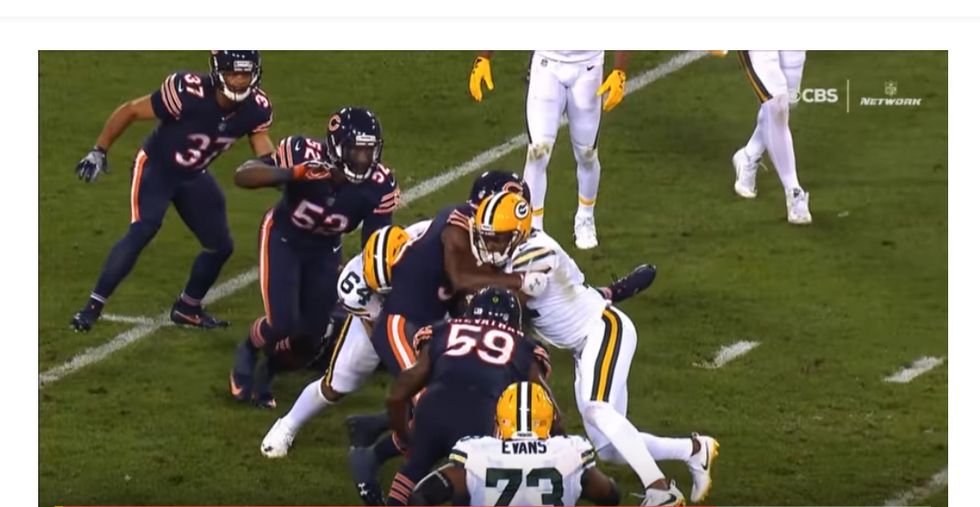On third and goal on the Bears 19-yard line, Packers wide receiver Devante Adams caught a screen pass about 10 yards up the field. As his progress was slowed by a cluster of Bears defenders, cornerback Danny Trevathan lowered his helmet. The popping sound of the two helmets colliding, along with Adams’ mouth guard flying through the air, sent shockwaves of urgency through players' and spectators' minds.
Diagnosed with concussion-like symptoms, Adams missed the past two weeks while in concussion protocol. Danny Trevathan has been suspended by the NFL.
The reaction to this hit is a testament to the changing culture in football. Over the past five to ten years, football has changed from its brand of brutal gladiator combat to a family fun weekend. In the past, Trevathan’s hit would have been met with positive reinforcement. He would have been praised for that hit, not suspended.
In the days that followed the hit, ESPN covered it from the player's angle. They followed up on Adams’ health and Trevathan’s suspension. The hit was impossible to find on ESPN’s website.
Ten years ago, the complete opposite actions would have happened. Brain injuries weren’t an epidemic in the NFL until recently. Adams would have been probably taken to the sideline because he was knocked unconscious, maybe even taken out of the game, but he most likely would have never gone into a two-week concussion program.
Trevathan would have never been suspended. This hit by Trevathan wasn’t completely avoidable. As Adams got caught up in the middle of the field, he began to turn to the direction of Trevathan’s path. From Trevathan’s angle, it was third down, this is Green Bay’s number one wide receiver, and it looks like he is slipping away from the guy tackling him.
The hit was a helmet-to-helmet hit, meaning that it is an automatic penalty; due to its nature, it's an automatic suspension. However, this behavior could have earned Trevathan some extra money. In 2012, New Orleans Saints Coach Sean Payton came under fire for a bounty scandal. NFL investigators found that Payton knew about extra payments given to players for purposefully knocking opponents out of the game. Payton served a year of unpaid leave before returning to his team.
Payton’s defense to investigators was that many teams follow the same concept. So, under those conditions, Trevathan could have earned himself an extra bonus for knocking out Adams. To be fair, no other team was found to use the "bounty system." Also, to Trevathan’s credit, he never showed any behavior like this before. Along with that, in the post-game press conference, when asked if was worried about getting fined or suspended, he told ESPN that he was only worried about Adams’ health.
In the media, this would have been used as a "top hit." This one might still hold up. Through video streaming websites like YouTube, you can view videos of this nature. Related to the video of the Adams hit are videos that read “Top 10 Knockouts in the NFL.” The only difference from the past to now, is that mainstream sports news won’t show replays of the hit. If ESPN does show the clip while reviewing the Packers-Bears game, it wouldn’t be talked about with a light-hearted undertone. The hosts would allude to the severity of the situation.
There is a different atmosphere around the NFL. There is no longer a need to commoditize the violence of the sport. Despite the movement to protect their players, the level of play has increased and the speed of the game has increased. Through reflection, the hit on Devante Adams highlights the changes in attitude and play style in the NFL.

















